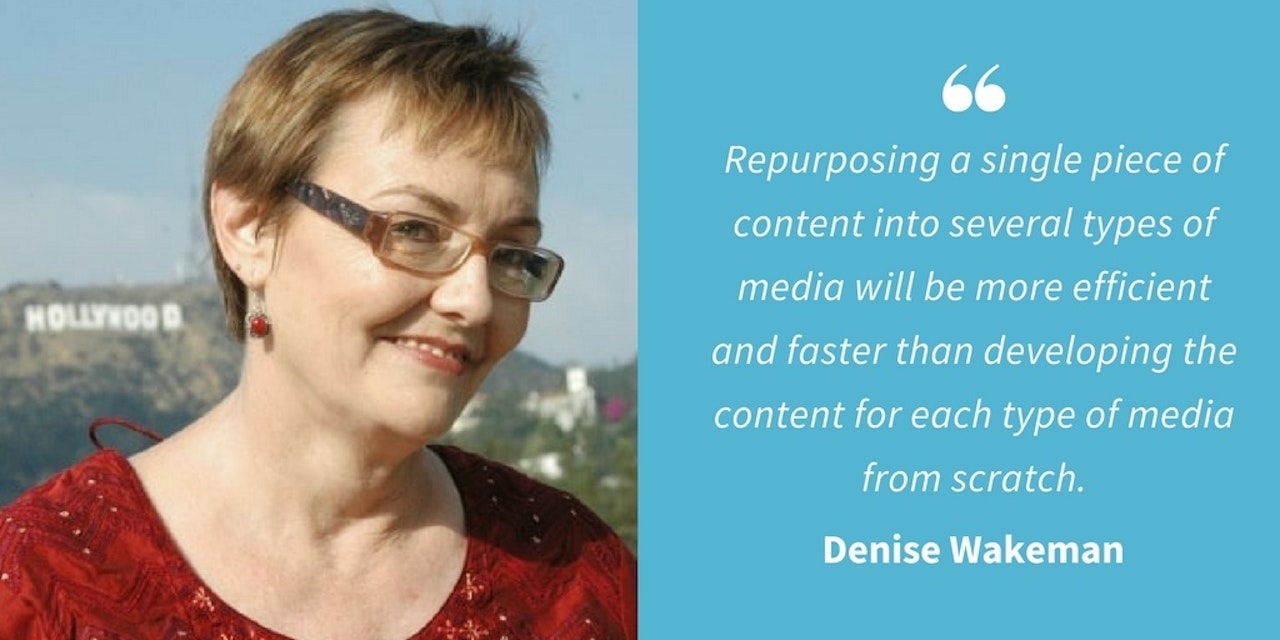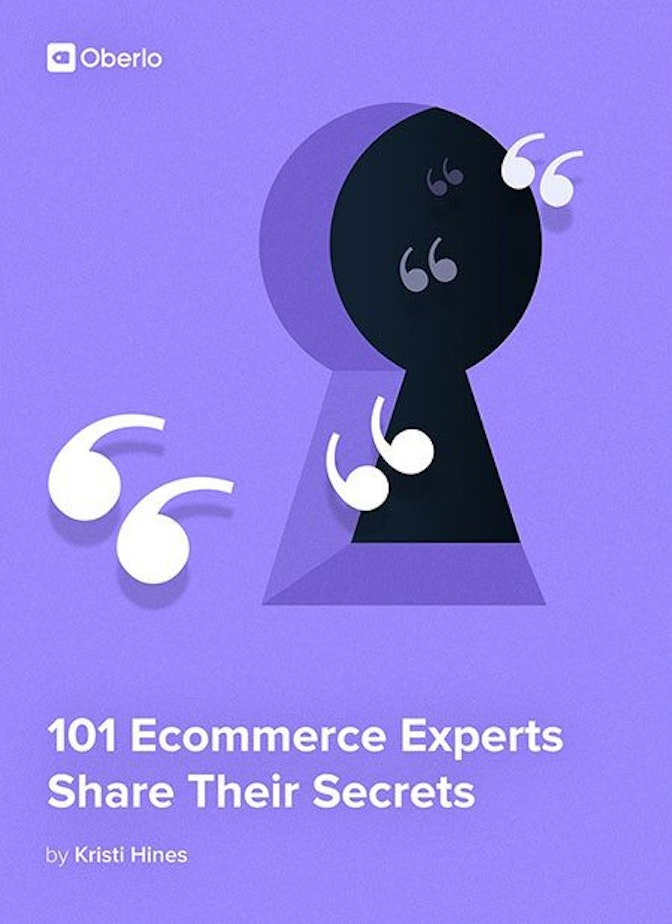Want to step up your marketing game? We reached out to the top ecommerce experts to share their best hacks. These are their marketing quotes:



Top Marketing Quotes from Ecommerce Experts
Denise Wakeman
Digital Marketing Consultant, Adventures in Visibility
Twitter LinkedIn
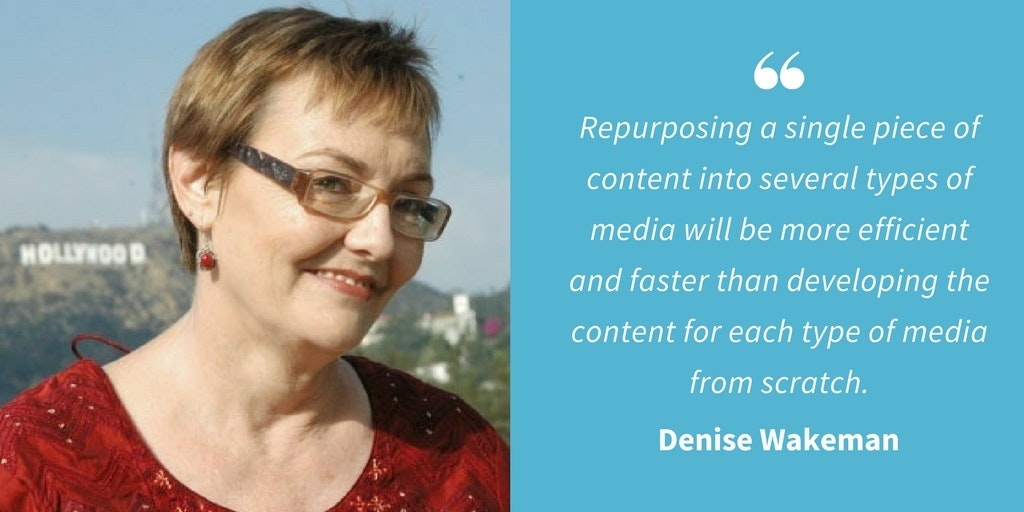
→ Click Here to Launch Your Online Business with Shopify
“Experiment with multiple media formats to educate potential customers about your products. Blog posts, videos, images, and audio will each attract people who respond based on their own preferences. You’ll be able to cast a wider net for prospective new customers if you “speak” in their language. Repurposing a single piece of content into several types of media will be more efficient and faster than developing the content for each type of media from scratch.”
Tracey Bond
Publicist, Beneficience
Twitter LinkedIn
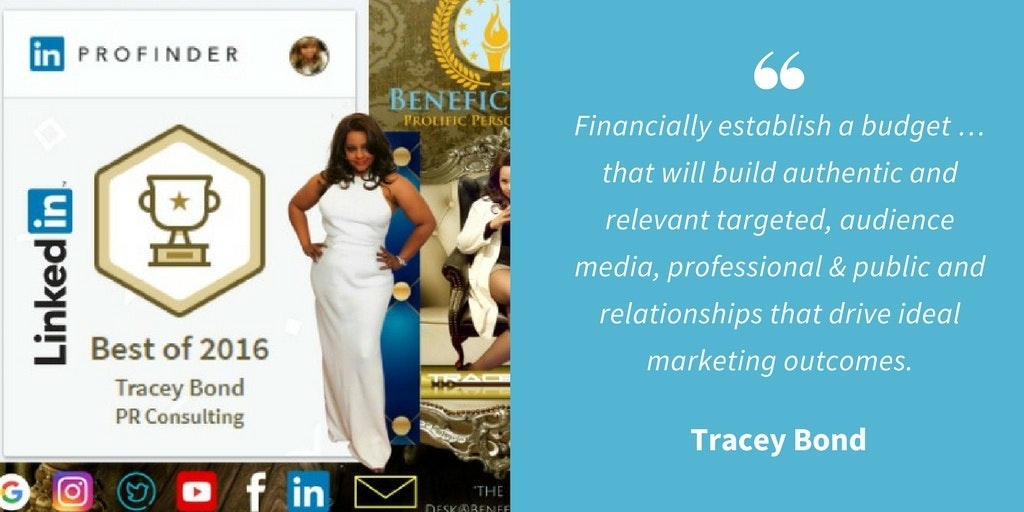
“Consumer audiences are interested in experience learning about businesses and brands shared-values through earned media (interviews, media appearances), shared media (word of mouth, re-tweets, post re-shares & interactive comment engagement) and third-party (reviews, etc.) quality interactions, long before the transactions. Financially establish a budget … that will build authentic and relevant targeted, audience media, professional & public and relationships that drive ideal marketing outcomes.”
Jason Romero
Software Developer, Etchasoft Inc.
Twitter LinkedIn
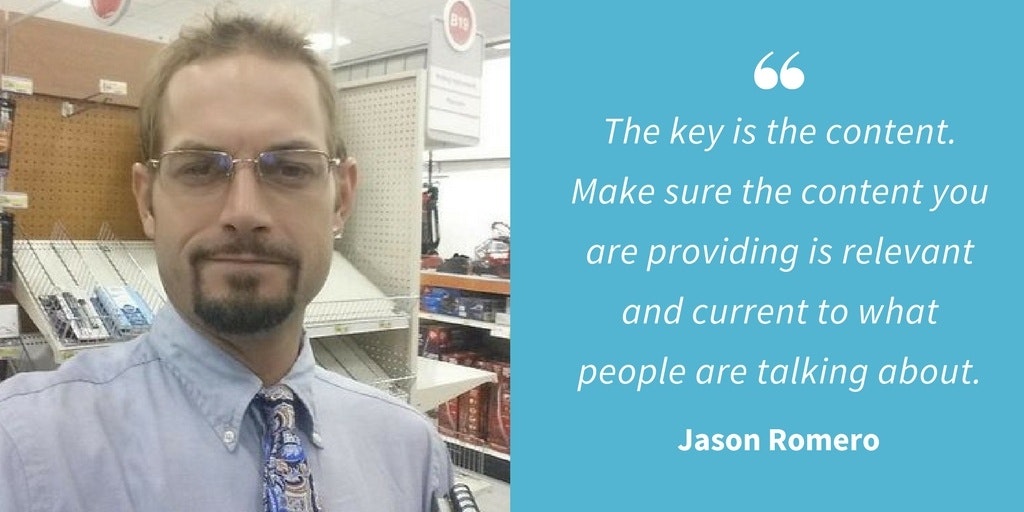
“The key is the content. Make sure the content you are providing is relevant and current to what people are talking about. Provide solutions to the problems that are currently being discussed.”
Paul Johnston
President / CEO, Search Gurus Inc
Twitter LinkedIn
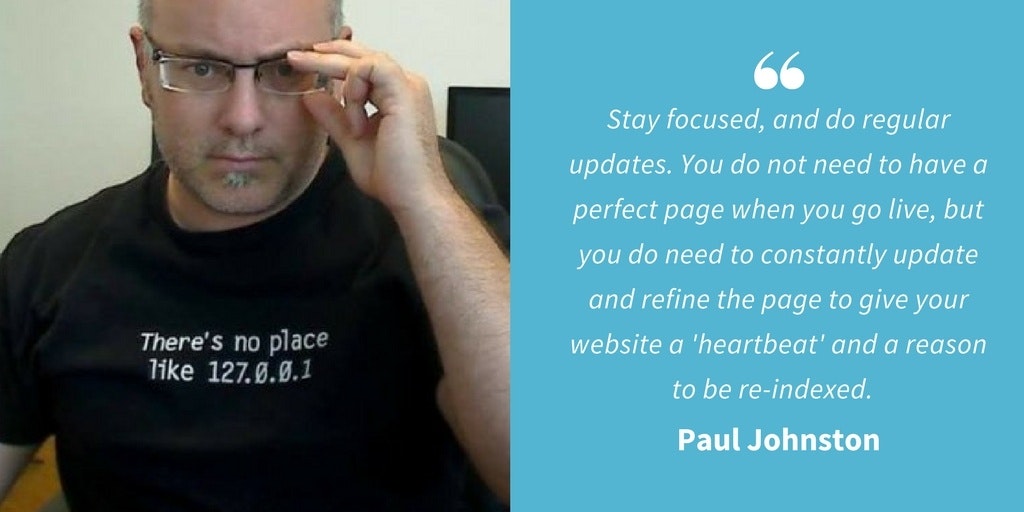
“Stay focused, and do regular updates. Take the time to cover the who, what, where, when and why for each product you are promoting. Make sure the description contains the keywords you want to rank well for and add supporting content. Make sure you add alt text for each image and video. If you are lacking video of your product, then make a video and add it. It’s amazing how quickly this tip will help your website stand out above the competitors. Once this is done, rinse and repeat. Make sure you are updating the content regularly. Add more content or additional details. You do not need to have a perfect page when you go live, but you do need to constantly update and refine the page to give your website a ‘heartbeat’ and a reason to be re-indexed. And above all else, stay positive and keep moving forward towards your goals.”
Mark Crosling
Founder, Live Broadcast Inc.
Twitter LinkedIn
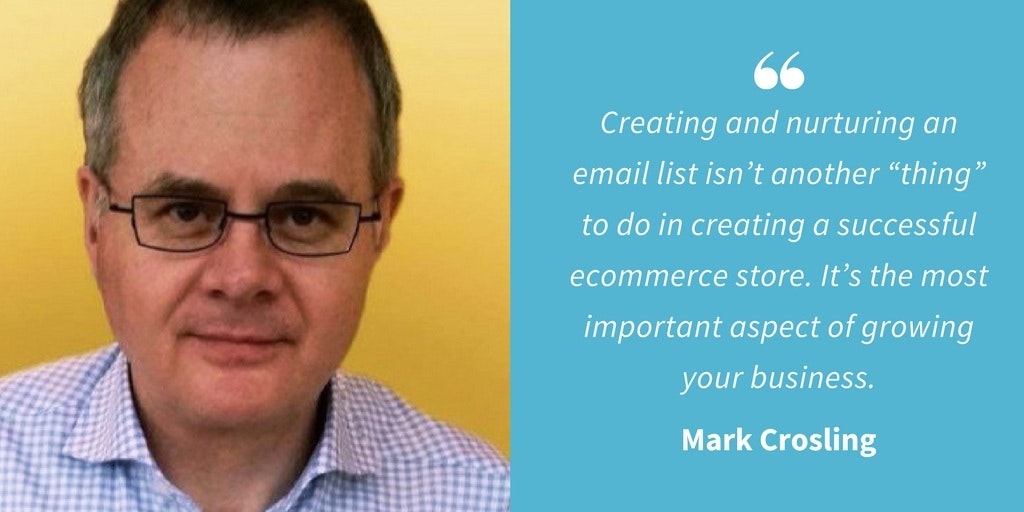
“Having an email list of people who dig what you’re selling is the #1 tip for a successful ecommerce store.
It’s taken as a given that you’ll be showcasing what your ecommerce site offers on various social media platforms. This is great for branding and awareness. But the aim is to get them to your store to make a purchase and if they haven’t, to subscribe to your newsletter for the latest product updates.
So, if your potential customer buys from you, they’re put on your email list. If they haven’t quite found what they’re looking for but want to be notified of new products, they subscribe to your email list.
The same goes for the descriptive blogs written about your awesome products and how they can benefit a potential customer. At the bottom of each blog there should be a subscribe form for your newsletter and in doing so, they join your email list.
Creating and nurturing an email list isn’t another “thing” to do in creating a successful ecommerce store. It’s the most important aspect of growing your business.
Here’s the kicker. Your email list allows you to have a “conversation” with a person that’s either purchased from you or is very interested in what you sell. That’s golden.”
Anthony Kirlew
Founder & CMO, Infinion Marketing
Twitter LinkedIn
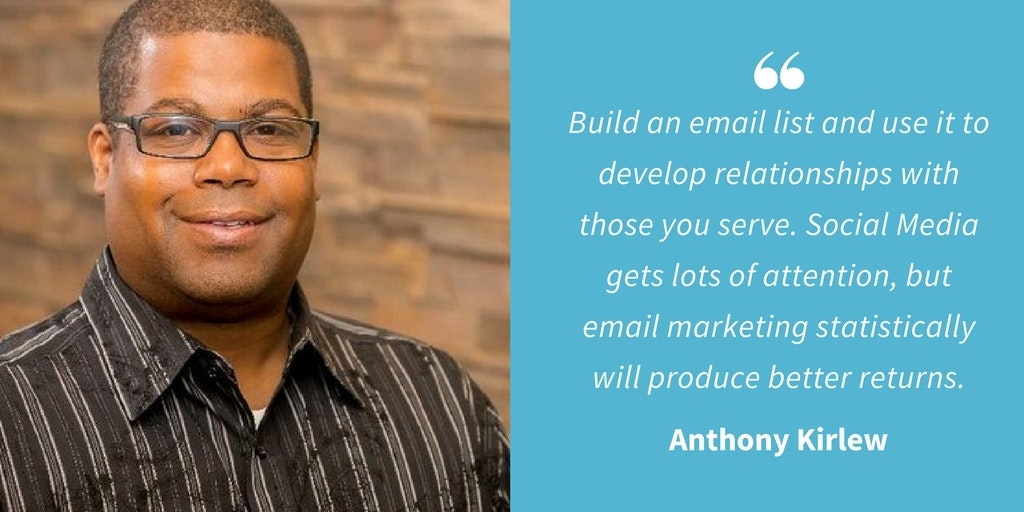
“Build an email list and use it to develop relationships with those you serve. Social Media gets lots of attention, but email marketing statistically will produce better returns.”
Mike Allton
Content Marketing Practitioner, The Social Media Hat
Twitter LinkedIn
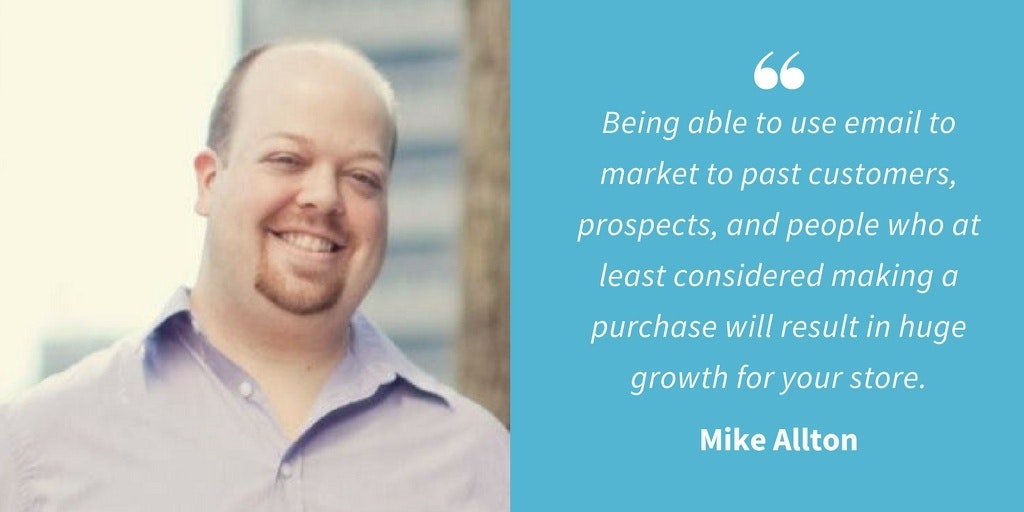
“Your #1 focus needs to be on building and leveraging your email list.
First, you must collect an email address for every customer and have that email in a list where their purchase history is included. This will allow you to keep in touch with that customer over time from a marketing perspective (which means that might mean duplicating the custom info if you have a sales database that cannot be used for email marketing).
Do this even if you only have one product and no possibility for repeat purchases. You never know when you might have more! And the ability to reach out to past, happy customers with new related offers is the best situation.
Second, you have to give website visitors who aren’t ready to purchase an option and a reason to provide you with an email address. Since they’ve been to your site, they are now familiar with you and will be easier to market to in the future.
Techniques for collecting email are varied but will generally fall into one of these buckets:
- Subscribe for more news, information, and insider tips.
- Sign up to have a specific, free resource emailed.
- Participate in a contest or sweepstakes.
- Sign up to receive a discount or coupon.
- Sign up during the checkout process.
I mention the checkout process because as an ecommerce store, this one is particularly applicable and important.
Many of your online visitors will shop your site, select one or more products, start to check out, and then stop. Maybe they got interrupted, or maybe they didn’t like the shipping options, or maybe they started to have second-thoughts about the purchase.
If you can, make collecting their email and basic information as close to the front of the checkout process as possible so that, when your system sees that someone created an account but didn’t finish the checkout, you can email them!
Being able to use email to market to past customers, prospects, and people who at least considered making a purchase will result in huge growth for your store.”
Moosa Hemani
SEO Specialist, Thrive Internet Marketing
Twitter LinkedIn
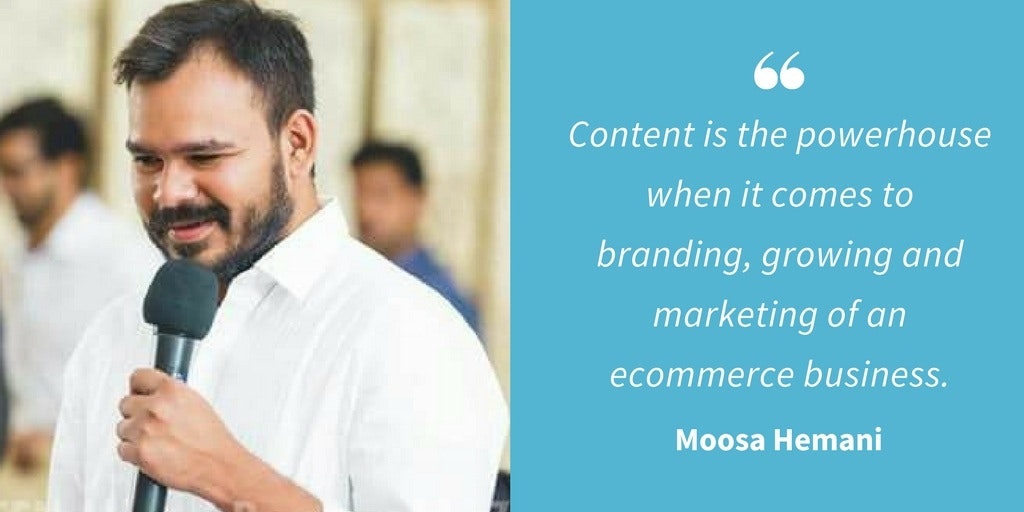
“After working with quite a few ecommerce businesses in different niches like fashion, office products and more, I can say that content is the powerhouse when it comes to branding, growing and marketing of an ecommerce business.
And content is not limited to text you have on your website, but the way you present yourself on Instagram, youtube videos, image quality, blog tone, quality of written content, how you interact with influencers within the industry, your customer service and more, all are part of your content and if your content strategy in all these areas are defined. You will be able to build a brand like no other within your niche and that will have a significant positive impact on your branding, SEO, marketing and that will definitely increase your sales as well as conversion rate of your website.
Keep creating relevant and creative content that your target audience can love and relate to and keep the content strategies for all channels aligned towards your customers and growth and number will magically go up (especially in the peak times).
Michael Brito
EVP, Technology, Zeno Group
Twitter LinkedIn
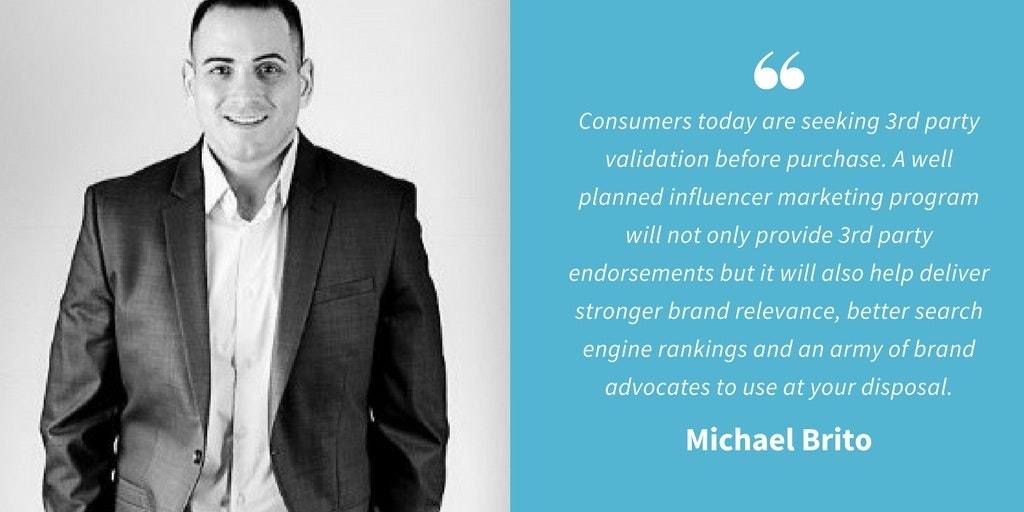
“Building an influencer marketing strategy is critical to drive consideration and demand. The sales funnel is no longer linear. It’s dynamic and consumers today are seeking 3rd party validation before purchase. A well planned influencer marketing program will not only provide 3rd party endorsements but it will also help deliver stronger brand relevance, better search engine rankings and an army of brand advocates to use at your disposal.”
Scott A Frangos
Chief Optimizer, WebDirexion LLC
Twitter LinkedIn
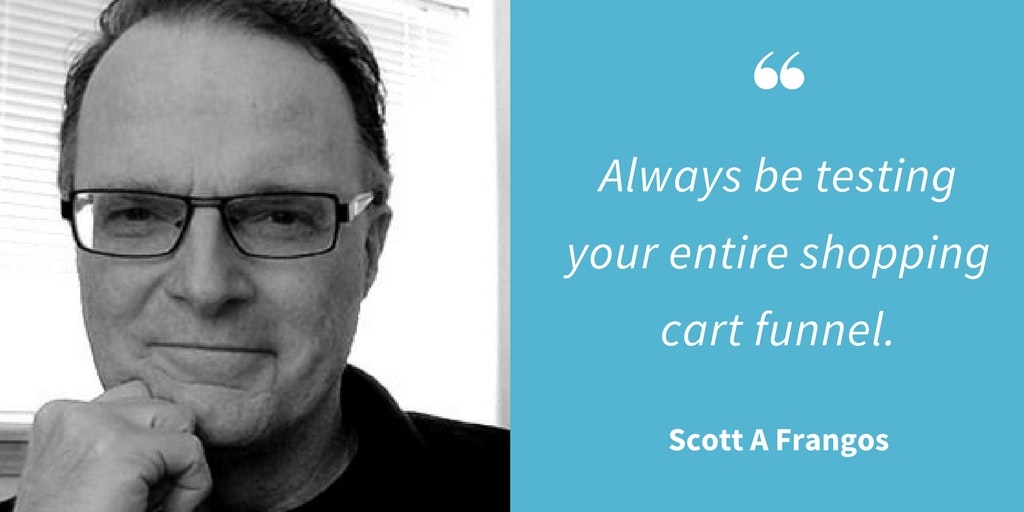
“Connect your store to smart automated marketing to follow visitors with messages (ie. abandoned cart emails to entice them back); always be testing your entire shopping cart funnel — learn split testing.”
Kyle Mucha
Co-Founder, Marketpreneurs
Twitter LinkedIn
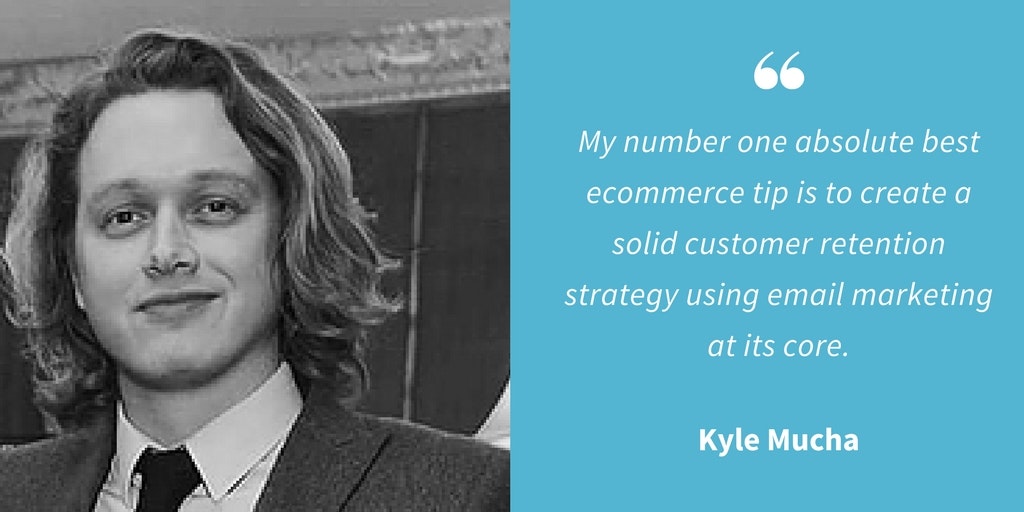
“New store owners too often focus on customer acquisition without a solid strategy for retention in place. This customer retention strategy should have email marketing at its core. As this is what will drive long-term engagement and increase the average customer lifetime value.
Email automation tools play a vital role in this. As there are several stages of the customer journey where people are more receptive to emails. Examples of this are, on signing up to a newsletter, becoming a new customer, and after purchasing multiple times. The online shopper expects to receive email communication in certain instances. If stores are not doing this it will negatively affect their brand.
By using email automation, stores can send email communications automatically to customers at the times they expect to receive them. This not only removes the negative impact on their brand but increases engagement with the customer and builds a better relationship. This will get more customers returning to their store and buying more.
My number one absolute best ecommerce tip is to create a solid customer retention strategy using email marketing at its core.”
Greg Hyer
Digital Marketing and Media Strategist, Excelerate Digital
Twitter LinkedIn
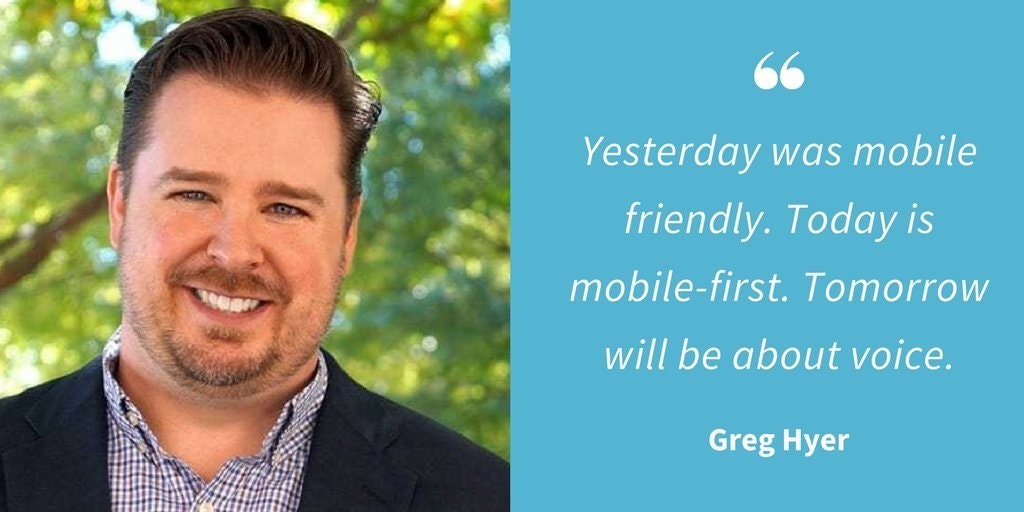
“Yesterday was mobile friendly. Today is mobile-first. Tomorrow will be about voice. Voice assistant devices like Amazon Alexa, Google Home, and Apple’s Siri are enabling a new buying experience that help customer buy even more than before. Integrating your ecommerce store with voice assistants to help customers shop your store, buy your products, and engage with customer service will not only grow your business, it will also keep you ahead of the competition.”
Adam Watson
Marketing Director,Hollywood Mirrors
Twitter
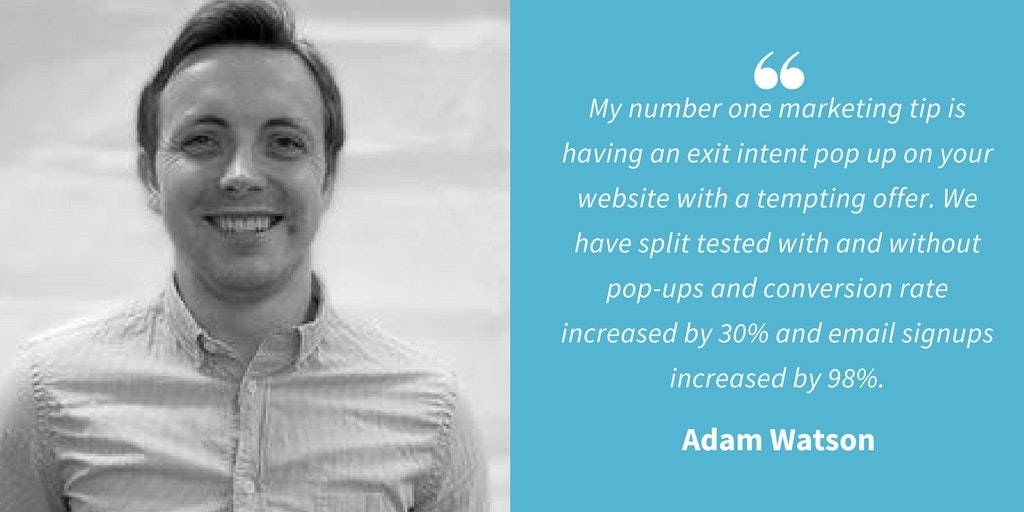
“My number one marketing tip is having an exit intent pop up on your website with a tempting offer. We have split tested with and without pop-ups and conversion rate increased by 30% and email signups increased by 98%. It is also very important to split test pop up offers to see which your customers find the most appealing and convert the best.”
Sid Bharath
Marketing Consultant, SidBharath.com
Twitter LinkedIn
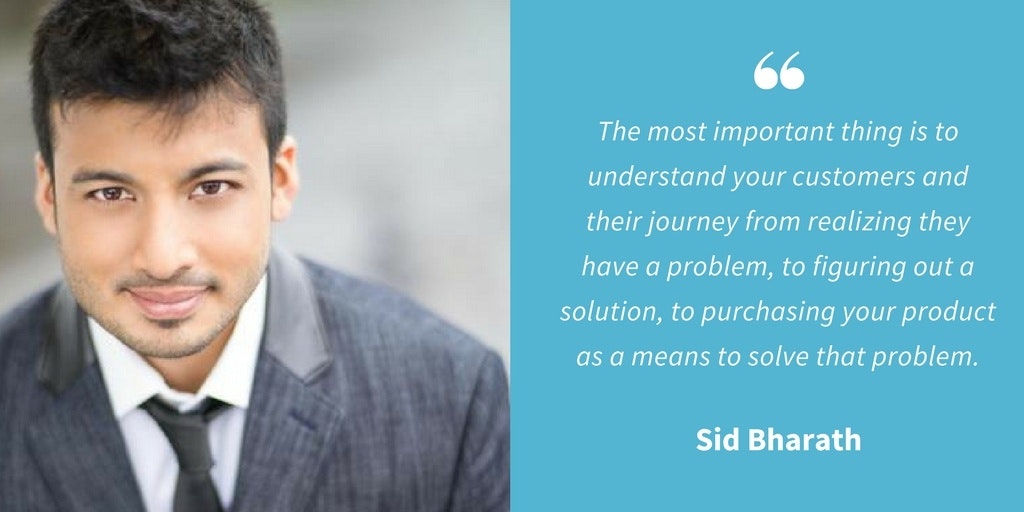
“The most important thing is to understand your customers and their journey from realizing they have a problem, to figuring out a solution, to purchasing your product as a means to solve that problem. Your customer has different needs and motivations at each stage of the journey so don’t expect them to reach for their wallets the moment they find your store, especially if they’re still in the stage of realizing they have a problem or need.
Once you understand this, you can craft your message and marketing funnel. Whatever channels you use, be it influencers or advertising, remember that they need to go through this journey and very rarely do they skip steps.”
Amir Jaffari
Growth, Shopify
Twitter LinkedIn
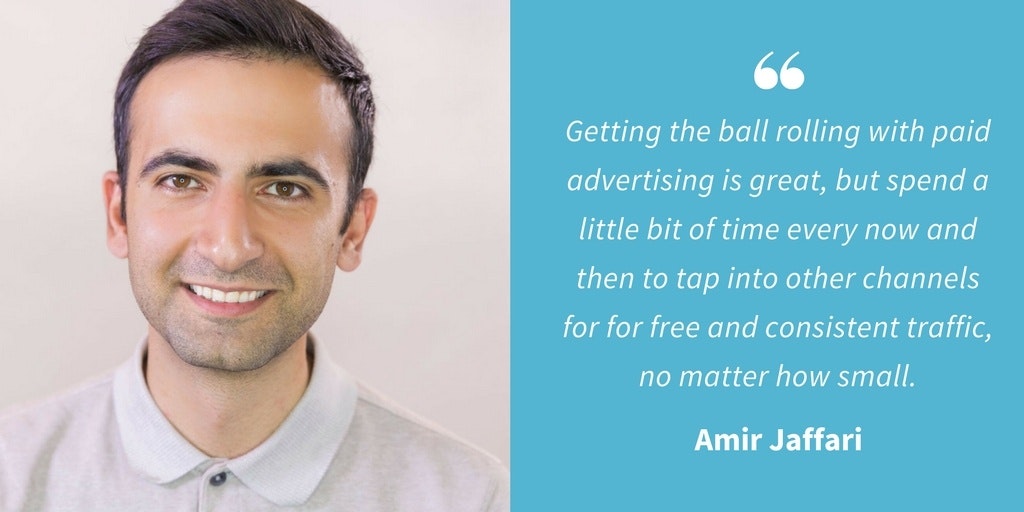
“Getting the ball rolling with paid advertising is great, but spend a little bit of time every now and then to tap into other channels for for free and consistent traffic, no matter how small.
These could be creating content and optimizing for search, building a mailing list, creating an affiliate network with the Buy Button, building your following on social channels, and getting link backs on evergreen content like list posts and directories.
This will help you maintain your growth and you’ll not be dependent on a single source for sales.”
Michael Stricker
Lead Consultant, MSDesign
Twitter LinkedIn
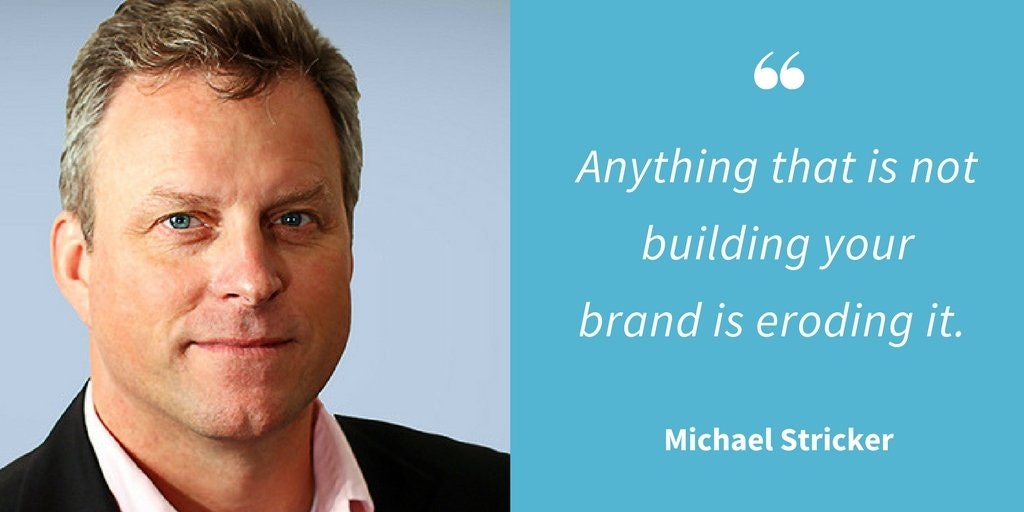
“Retain your way to healthy revenue, with Cyclical Win Back Campaigns. Those who have bought from you once, are much more likely to buy again. You have already invested in these customers, through SEO efforts, or Digital Ads. They have gained some brand awareness, even brand affinity, and have manageable expectations about how the buying process works, enough to have developed a level of trust for your store. Use email but don’t rule out Social Ads to Past Customer Lists and old Remarketing lists where you can identify interests. Troll a Past Customer List immediately with:
1) INQUIRE: How did your purchase go? Honestly tell them of your new business, what motivates and inspires you, how much you appreciate their purchase. Seek ratings, reviews, any feedback.
2) BUILD ADVOCATES: Instead of pitching the former customer for a sale, make the smart move: Feed them an offer for Friends and Relatives, to take advantage of the Double Whammy: the “birds of a feather” principle that suggests they associate with people of similar interests and tastes and “the mantle of trust” that envelopes their forwarded offers with their own reputation. This way, you can reach a more targeted audience in the guise of a friend, for better response.
3) ANYTHING THAT IS NOT BUILDING YOUR BRAND, IS ERODING IT: Handle complaints with speed and positive results. Offer to listen (and act on) any suggestions they may have. As Bill Gates said,“Your most unhappy customers are your greatest source of learning.”. So, listen. Reflect. Remedy. Affirm. It has been said that it costs far less to keep a prior customer than to attract and convert a new one. And, the Pareto Principle states that 80% of your business revenue derives from 20% of your customers. Build your profitable business on a foundation of trust.
4) CYCLICALS: Stock supplies, batteries, containers, then, at key intervals, send messages tailored to accessorize, replenish, supply or supplement their prior purchase. Be useful. Mention trends, new models, price changes.
5) CONCIERGE SERVICE: Personalize their shopping experience followup with select offers based on prior purchases. Show them modifications and items that complement the original purchase. Better still, show an item or two, at most, chosen to suit them personally, and make them an exclusive offer (e.g. free shipping for purchases over $X).
In a world of automation, the personal touch can be very impressive to customers, and you can afford to invest in the effort because they have a demonstrated willingness to buy from you, already.
Shelley Walsh
Founder, ShellShock & Content 101
Twitter LinkedIn
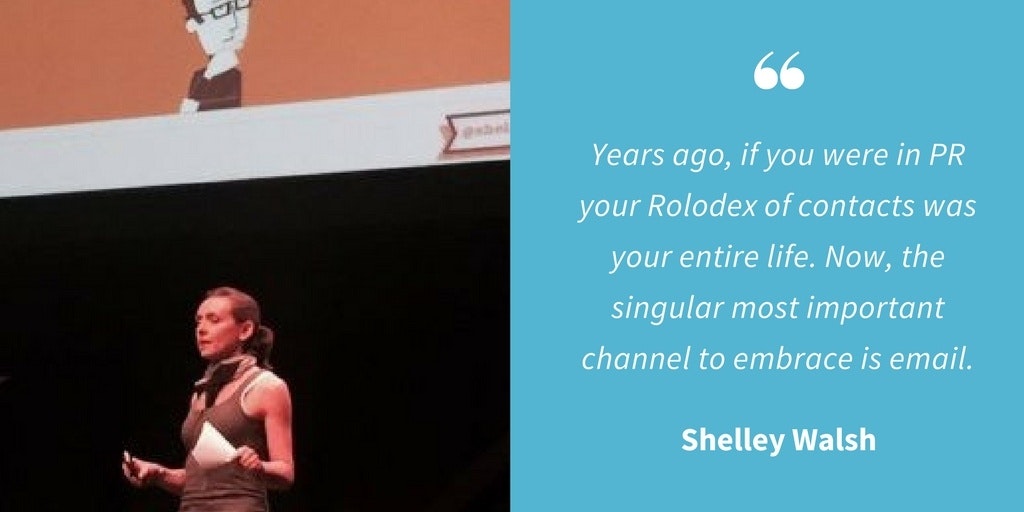
“Firstly, my thoughts are that we need to think out of search box and become more resourceful in finding traffic sources. Digital has come full circle and its now all about classic marketing again.
Years ago, if you were in PR your Roladex of contacts was your entire life. If you were in direct marketing you would sleep with your customer database under your pillow. Now, the singular most important channel to embrace is email: you have direct control over your audience through their email address, the conversation and the relationship, neither are you beholden to the whim of algorithm changes that can wipe you out overnight in SERPs or social.
Direct to customer, is always going to prevail. Whether that is through land mail, email or even a new AI mail technology to be developed.
Secondly, the resurgence of print is happening. I believe that users crave a tangible experience of a physical item to read. Reading online is much more difficult and I predict a rise in content being delivered in print. Digital campaigns combined across email, DM and also exclusive printed customer magazines and catalogues. I envisage combining offline print content alongside the digital for richer experience.
Brands such as The Great Discontent, 99U and The Alpine Review are excelling online to their niche audience and shipping highly desirable print magazines that sell out quickly. I see this as an area of growth.”
Gregory Ciotti
Content Marketing Lead, Shopify
Twitter LinkedIn

“I strongly encourage all store owners to consider setting up a basic customer support strategy in the early days. It’s my number one recommendation because it’s so often overlooked. When growing your store is top-of-mind, it can be easy to forget that once you have sales, you’ll also have customers who will need your help. More sales, more customers, more requests for help. It’s that simple.
As an entrepreneur, you’ll feel a strong sense of empathy for your customers, and this is where support can bite you. Because you want to help, you’ll treat every customer conversation exactly the same way; you’ll try to roll out the red carpet for each and every customer. In the early days that’s fine, but as you scale you’ll find this non-strategy breaks down fast. You have to prioritize your conversations and figure out how to reduce the number of unnecessary contacts. That’s not cold-hearted, it’s what customers want! Remember that most people don’t start their day looking to contact a business, so anywhere you can reduce the need for customers to contact you is a plus, for you and them.
And with a basic strategy in place, you’ll be able to keep track of incoming problems and get them fixed, which means customers will stop contacting you over minutiae (“Does this come in blue?”), giving you room to have meaningful, high-value conversations with customers.”
Dean Montandon
Managing Director, MODE Digital Marketing
Twitter LinkedIn

“Keep your message simple! Don’t over complicate things, your site and your marketing message needs to be easy to understand for everyone. The more complicated the message and more complex your site is to navigate, the more it will put people off and affect your sales.”
Usman Latif
Marcom Technologist & Growth Hacker, Digital Marketing Pakistan™
Twitter LinkedIn
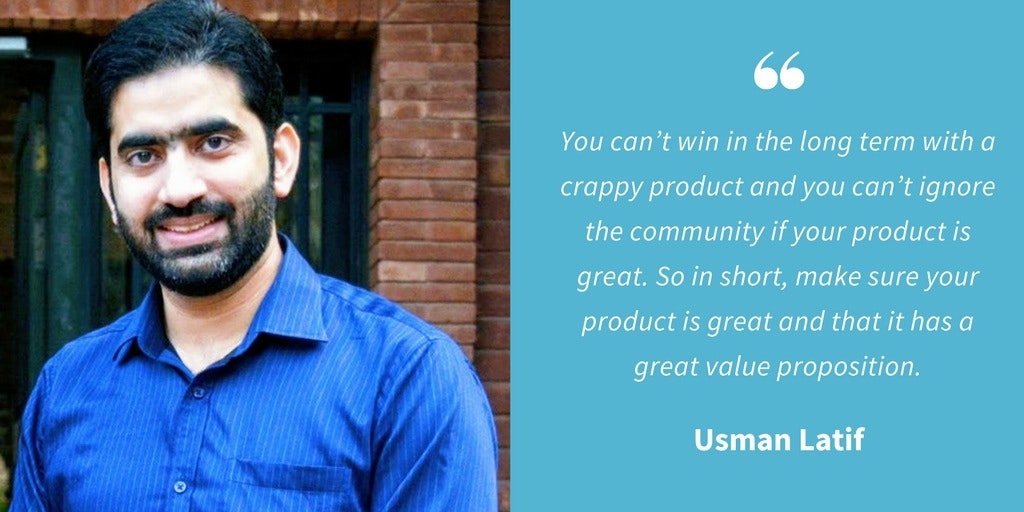
“Growing an ecommerce store is like growing a family. The buying cycle has drastically changed in the last few years and with the availability of a lot of screens, platforms, channels and options, it’s really easy to lose a customer to a competitor, if not taken care of. Your product is your guarantee. Work hard on making the product right, then reach out to the right audience at the right time on the right channel. And once you have gotten there, take care of your audience. It’s all interlinked. You can’t win in the long term with a crappy product and you can’t ignore the community if your product is great. So in short, make sure your product is great and that it has a great value proposition. Then grow your community by being available at all the places your target audience can possibly be. Once you have a community, keep them as a family and upsell/cross sell them other products from your inventory. Remember, there’s no right way to do it. Just do it and make sure you are making progress. Benchmark your success and measure continuously.”
Jason Nelson
Principal/Shopify Partner, Ascent Internet Marketing
Twitter LinkedIn
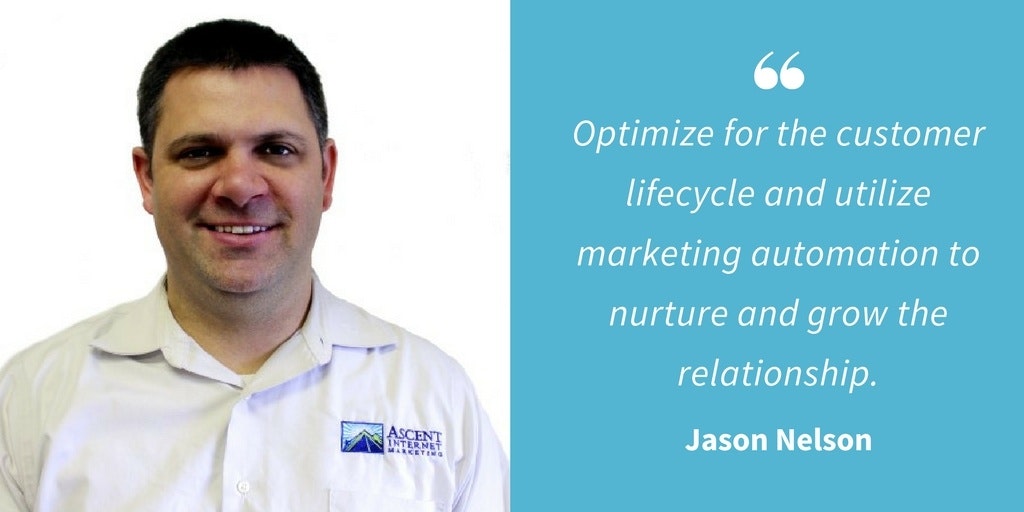
“Optimize for the customer lifecycle and utilize marketing automation to nurture and grow the relationship.”
Badruddeen Naseem
Director Information Technology, Mandhu College
LinkedIn
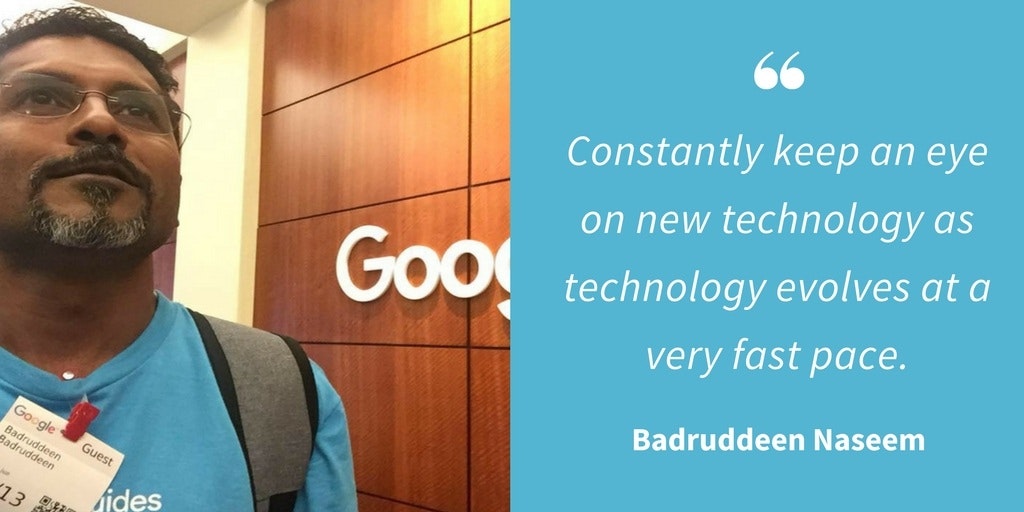
“Constantly keep an eye on new technology as technology evolves at a very fast pace. Find a way to engage your customers so they would stick and show loyalty to your business. Word of mouth is the most effective marketing tool so make your customers happy and your customers would talk and recommend your business.”
Kin Perry
Founder, Last Hour Media
Twitter LinkedIn
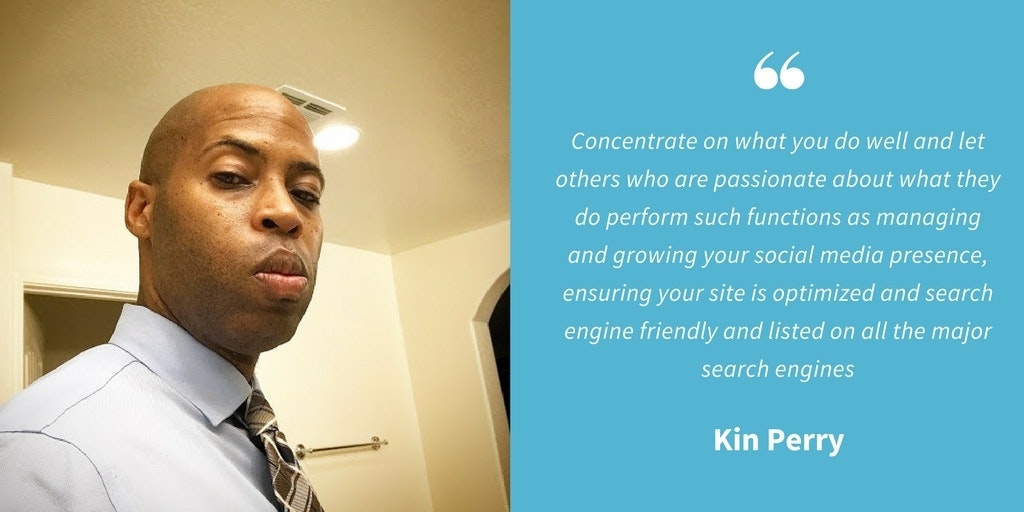
“When building your online store be sure your ecommerce store looks like a million dollar brand. Never underestimate the power of a professional looking product photo or a well-produced video. Everything from your website’s logo, color scheme, mobile-friendliness and security certificate plays into how your visitors perceive and interact with your site. Some of the biggest mistakes made are grammar and spelling. Those are huge turn-offs and screams small careless brand. Use tools like Grammarly and or a copy editor to ensure your brand does not make such mistakes.
Marketing is the lifeline of your ecommerce store. Find what social network sites your audience interacts on be sure to have a consistently branded page that looks similar to your final website and theme. Be sure to fill out all areas of the profile and product/service descriptions. Let’s face it, most of us cannot do it all when it comes to marketing and neither should we. Concentrate on what you do well and let others who are passionate about what they do perform such functions as managing and growing your social media presence, ensuring your site is optimized and search engine friendly and listed on all the major search engines (SEO). Don’t forget to include a newsletter signup form on the most heavily trafficked pages of your website to create your newsletter which should go out at least twice per month.
In my 22 years of building, marketing and growing ecommerce websites, I have come to know that growing your business will take understanding your visitors, tracking their activity, knowing where your audience interacts online most and creating innovative ways to attract traffic to your ecommerce site and it’s products. Aligning your brand with affiliates, influencers and companies who can bring further visibility to your brand will be a key attribute to growing your business. Customer service and the quality of your products will be key in your brands future. Gather as many reviews both on your website and on the social networks your customers frequent will help others feel confident in purchasing your products as well.
As a ecommerce expert, one of the largest mistakes and hindrances to an ecommerce website’s future is lack of marketing and lack of resources allocated to advertising. To many site owners neglect the importance of adding funds from profit on each sale back toward the marketing and advertising of the business itself. Although an ecommerce website may take a sizeable investment to launch effectively, these types of investments usually are recouped within the 1st year of business with proper strategies in place. With an execution of all of the above and a few unique strategies, I was able to launch a t-shirt business online within as little as $500 invested and generating over $20k in profits in just 45 days.”
Greg Shuey
Co-Founder & COO, Stryde
Twitter LinkedIn
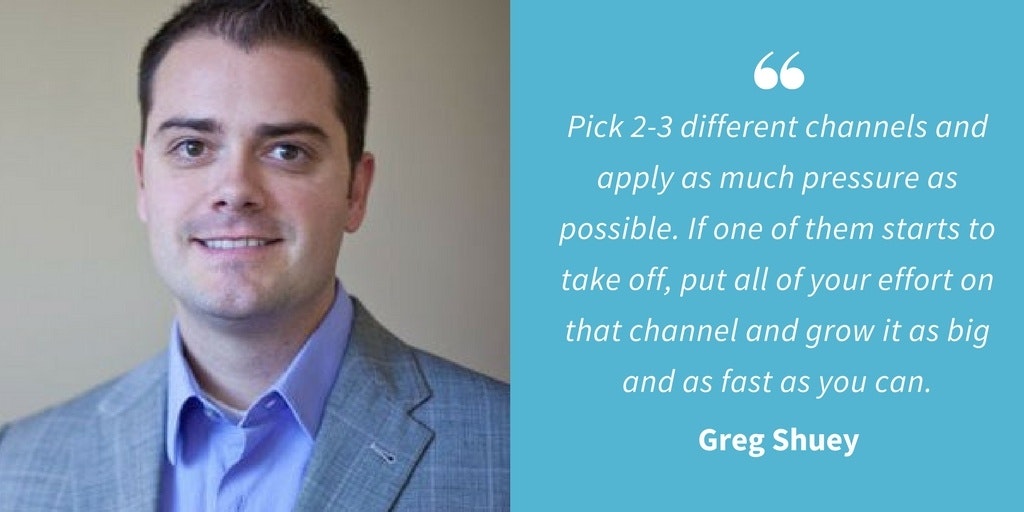
“It’s easy to think you can leverage several different marketing channels to drive traffic and brand awareness, but if you’re not careful, you’ll dilute yourself and progress will slow.
Instead, pick 2-3 different channels and apply as much pressure as possible. If one of them starts to take off, put all of your effort on that channel and grow it as big and as fast as you can.
Once that channel is stable and can sustain itself, pick a few other channels and start applying pressure to see where the next big win is. Rinse and repeat.”
Shanelle Mullin
Growth & Content, Shopify
Twitter LinkedIn
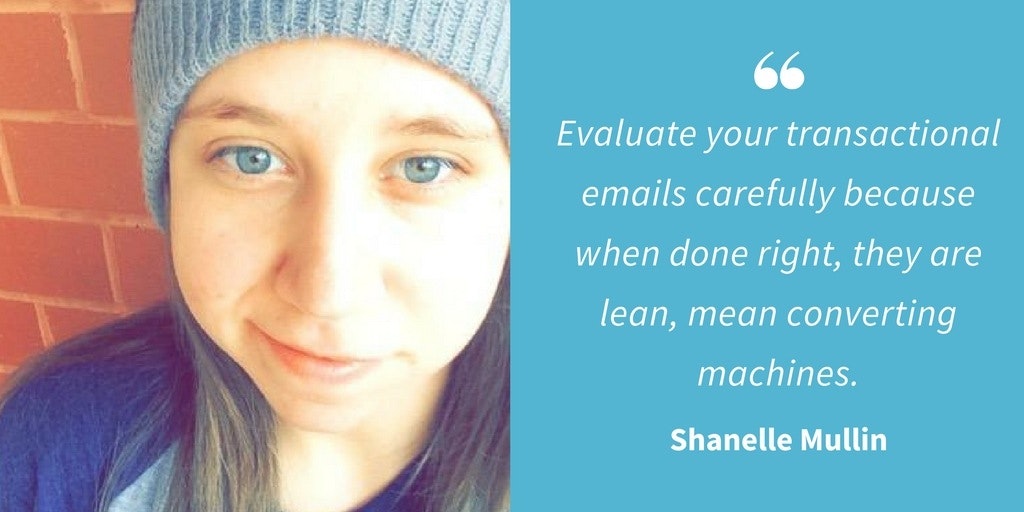
“Evaluate your transactional emails carefully because when done right, they are lean, mean converting machines. Welcome emails, reminders and notifications, receipts, order shipped emails, etc. are considered transactional emails. They’re more functional in nature, which makes them easy to forget about or leave to developers.
According to IBM Marketing Cloud, transactional emails are opened 2x more often than promotional emails and have a 3x higher click through rate.
You don’t want to turn your transactional emails into promotional emails, but product suggestions for someone who just purchased something, for example, can go a long way.
Think about it this way. If someone is receiving a transactional email from you, they just took an action. What can you add to that email to move them closer to taking another action that benefits you?”
Greg Jameson
President & CEO WebStores Ltd.
Author, The Influencer Effect
Twitter LinkedIn
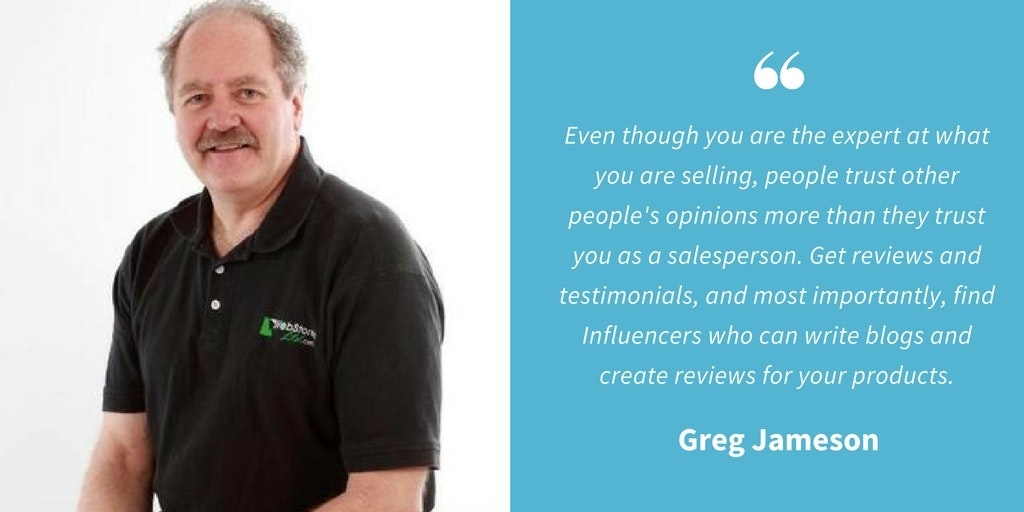
“Even though you are the expert at what you are selling, people trust other people’s opinions more than they trust you as a salesperson. Get reviews and testimonials, and most importantly, find Influencers who can write blogs and create reviews for your products. Incentivize people to market and sell on your behalf. Influencer marketing is the best way to engage your audience.”
Suttida Yang
CEO, Fastmarkit
Twitter LinkedIn

“Be clear on who your target audience is as this will be instrumental to your success. Next, don’t be afraid to invest in advertising. Doing so will enable you to test out different CTAs and messaging to see which ones drive the most sales. Also, make sure you have a financial model set up so that you understand how much you’re willing to pay for a lead and a sale. This will help you with forecasting and also understanding what your ROI is.”
Timothy Carter
CEO, Outrank Marketing LLC
Twitter LinkedIn
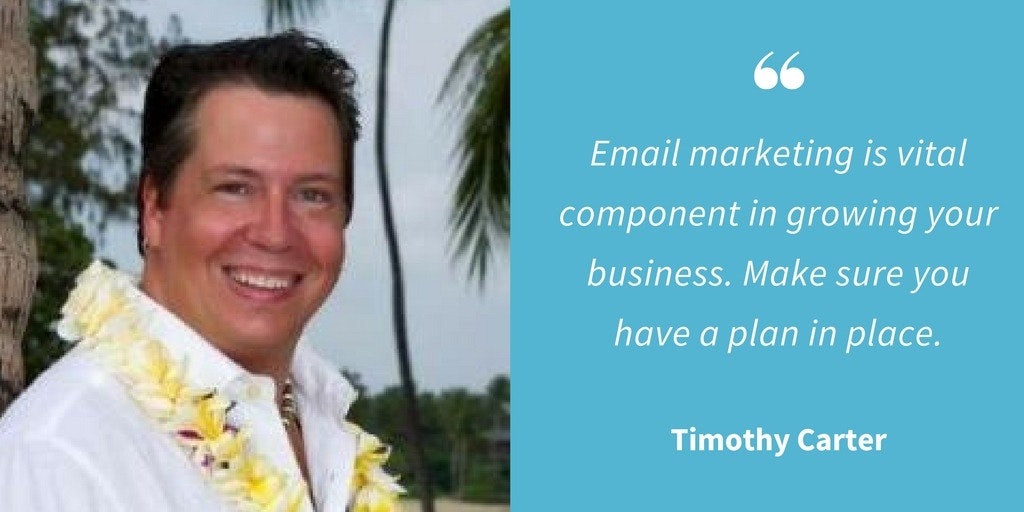
“Consider the lifetime value of your customer. Successful e-comm businesses are able to regularly influence existing customer and visitors to return to the website on a regular basis and make new purchases. This happens through email. Build your list. Segment out your list.
For example: current customers, former customers, prospects, etc. Then develop a plan on how you will consistently keep in touch with each list.
Provide a downloadable resource that educates your ideal customer to capture visitors contact details (name & email) who are thinking about your product/service so you can then create a series of follow up emails that continues that education, building trust and has a call-to-action in each email to visit your site.
For current customers, start sharing the latest blog article on your site. Have a plan to send seasonal sale offers and/or continuing to build trust or educate your customers you need to regularly keep in touch. These also need to have a call-to-action in each email to visit your site, check out the newest product/service, etc.
Email marketing is vital component in growing your business. Make sure you have a plan in place.”
Michael Doyle
Founder, Top4 Marketing
Twitter LinkedIn
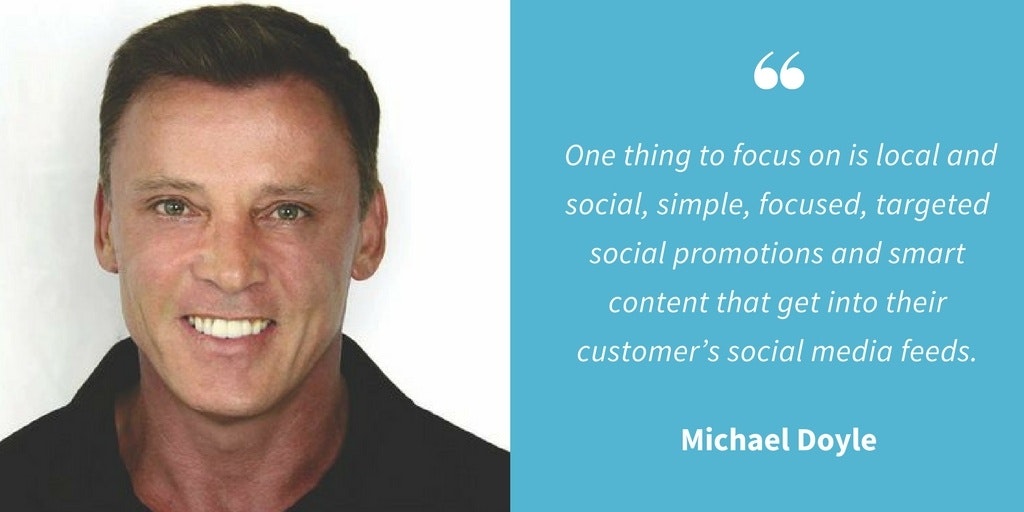
“With the likes of Amazon and other majors getting bigger and better with their ecommerce offerings the one thing to focus on is local and social, simple, focused, targeted social promotions and smart content that get into their customer’s social media feeds.
Know who your customer is. You can boost and target posts to hit that target market that would buy your product. Useful relevant information that helps them will work.
If you have an Adwords budget then put it out there about your product offer and lead the shopper directly to that page or product.”
Deborah Anderson
Doctorate Candidate in Business Psychology, Social Web Cafe
LinkedIn
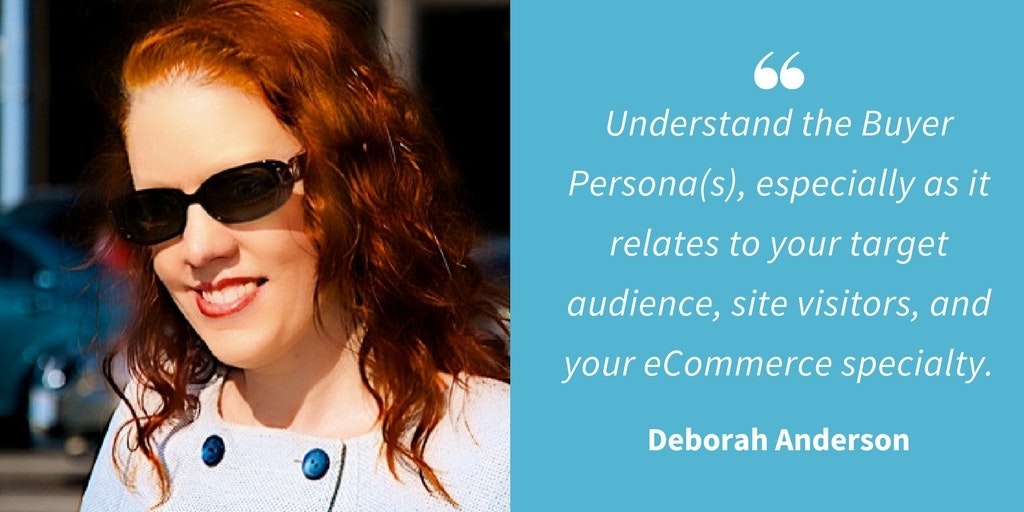
“Understand the Buyer Persona(s), especially as it relates to your target audience, site visitors, and your eCommerce specialty.”
Zubin Kutar
Head of Digital Marketing Transformation & Social Media, Tata Consultancy Services (TCS)
Twitter LinkedIn
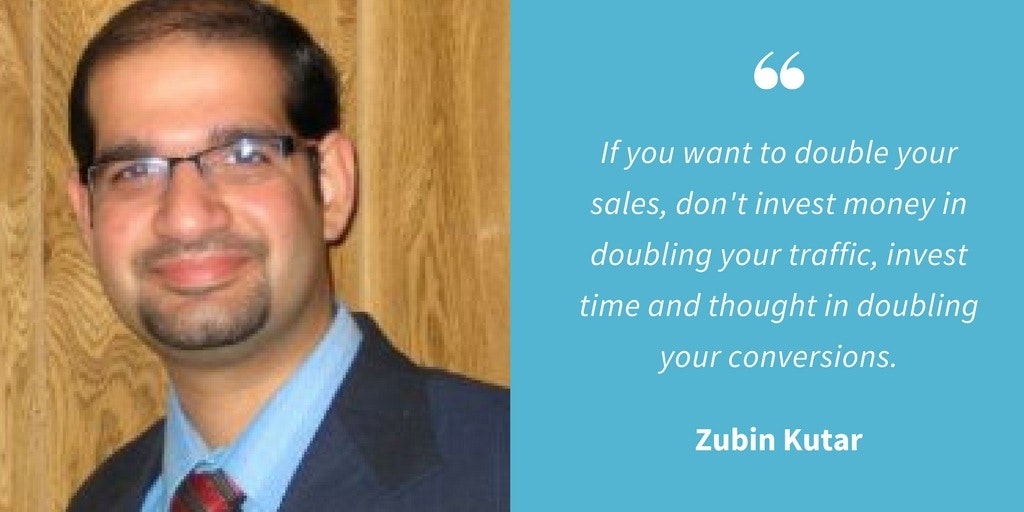
“If you want to double your sales, don’t invest money in doubling your traffic, invest time and thought in doubling your conversions. Conversion is key for any business online or offline. In the case of an online store focus on the conversion funnel. Map the user journey once he comes on to the site till he completes the payment journey. Look at leakages where the users are dropping off in the “shopping cart abandonment” cycle.
Focus on conversions via the ‘Shopping Cart Abandonment’ cycle – A majority of the users will drop off before the payment page is displayed, minor tweaks during the shopping cart fulfillment experiences goes a long way in increasing conversions. The easiest way is to copy what successful ecommerce shopping carts are doing. Use the same route don’t reinvent.”
